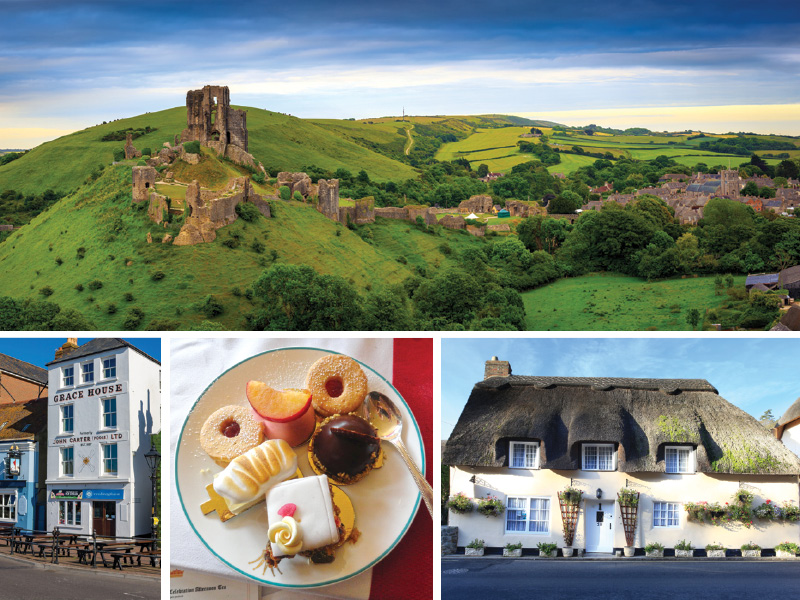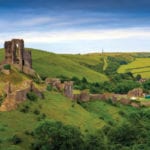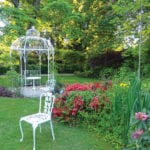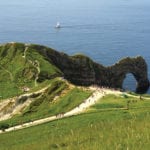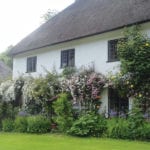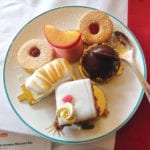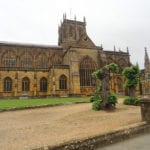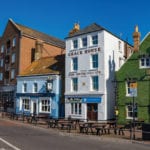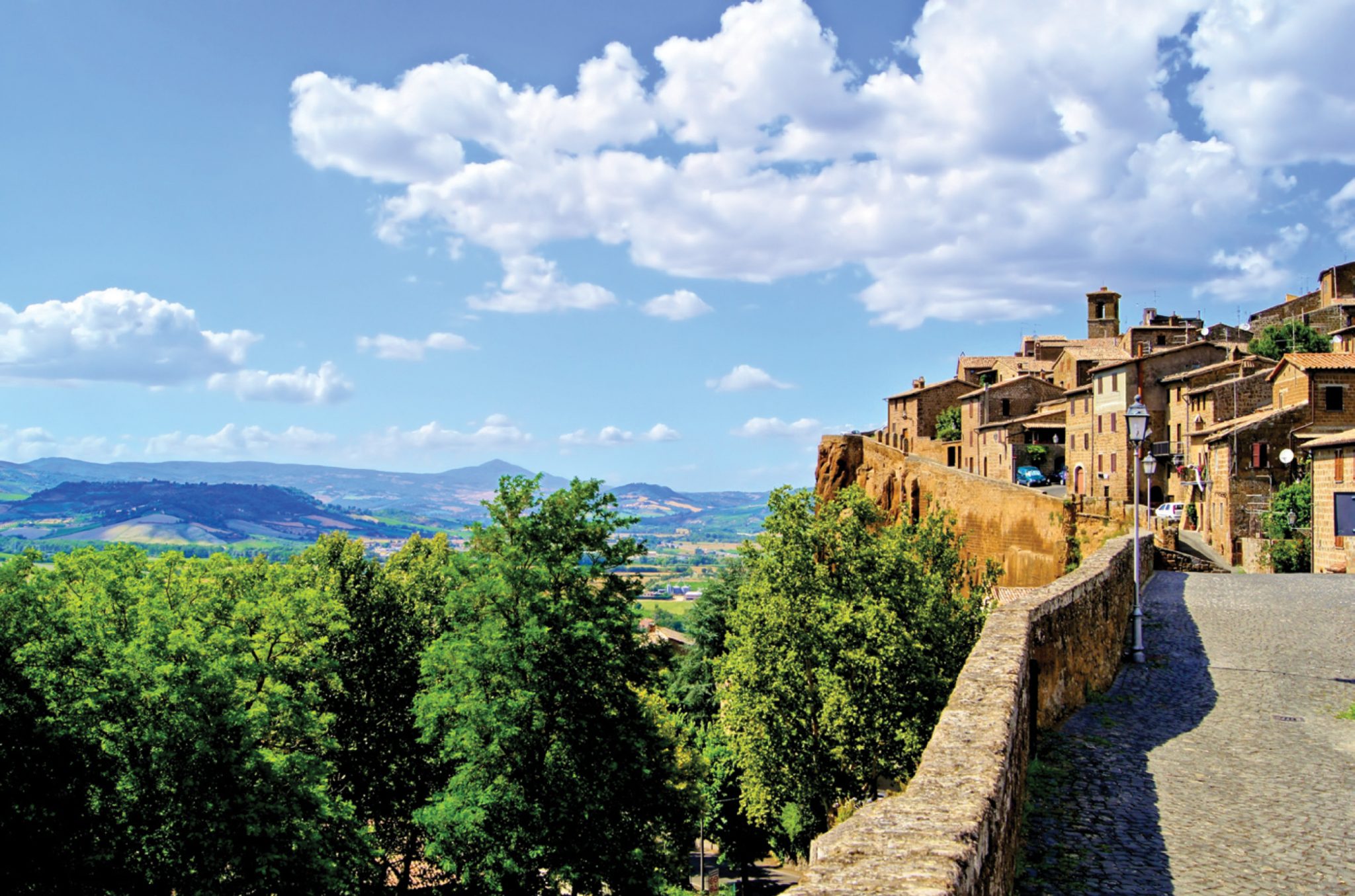Sure, London is exciting, urbane and full of culture. But that’s no reason to spend your entire vacation there, not when some of the most beautiful sites in England are only a couple of hours away. Heading southwest from the busy city, I spent an idyllic three days at Summer Lodge, a dowager house built by the second Earl of Ilchester in 1798. Now a 25-room country retreat, it is a member of The Red Carnation Hotel Collection and an acclaimed Relais & Chateaux property.
The region it’s in is Dorset, and everything there sets you right in the middle of the England most people long to experience: thatched-roof houses with lace curtains; country churches with gravestones so worn you can’t read them; stone cottages with window boxes and English gardens; winding roads so narrow a car must veer into the grassy hedge if there’s an oncoming vehicle (much to the horror of passengers!). The premise of properties like this is simple and oh-so-civilized: to get away from the commotion of city life and enjoy the serenity of the English countryside.
That describes Summer Lodge to a T. Set on four manicured acres of lush green foliage (and some of the most amazing landscaping four gardeners can create), it abuts a 9,000 acre deer park, offering endless possibilities for strolling. Naturally, there are croquet mallets and chaise lounges scattered about the property—and secret gardens and ponds where you fully expect to bump into Elizabeth Bennet and Mr. Darcy. In fact, the casts of Sense and Sensibility and Emma did, indeed, stay at Summer Lodge during filming! That means I may have slept in the same flowery room as Gwyneth Paltrow, Hugh Laurie, Emma Thompson, Kate Winslet or Alan Rickman!
A spa on the property offers treatment rooms and a beautiful, new, heated pool enclosed in a conservatory of glass panels—a fitting finale after a day of R&R, high tea or touring the many sites a short drive away. I hired a local guide to take me around Dorset to see its abundance of attractions, including Salisbury Cathedral, Stonehenge, Sherborne Castle and the dramatic Jurassic Coast.
There were simply too many alluring possibilities to squeeze into three days, so I eased into the passenger seat and allowed my guide, Andy Pedrick of Jurassic Jaunts, to pick and choose a handful of key destinations. First up, Stonehenge, where I was pleasantly surprised at how awe-inspiring it is. Do not pay attention to anyone who tells you it will be disappointing. Visitors can get very close to the massive structures, about 13 feet tall, and there is something humbling about being in the presence of this prehistoric symbol
surrounded by so much mystery.
Next we toured the town of Salisbury, renowned for its 13th-century cathedral in the early English Gothic style. It has the tallest spire in Britain and the largest cloisters of any British cathedral. Additionally, just beyond the south transept, a chapter house holds one of only four original copies of the Magna Carta, the 1215 document stating that people were entitled to be treated fairly, even by the king. It is said to have inspired the U.N. Declaration of Human Rights and the American Bill of Rights. The town of Salisbury itself is charming, with Tudor homes, shops and the infamous park where former Russian agent Sergei Skripal was poisoned (which we walked through to reach the cathedral).
You won’t want to miss the charming and history-packed town of Sherborne, which has a castle built by Sir Walter Raleigh, an abbey and boys’ school where Alan Turing (who cracked the Nazi Enigma code) was educated, an adorable shopping lane (incorrectly named Cheap Street) with uniquely British wares, and a very helpful Tourist Information Centre. A wonderfully walkable town, Sherborne is a stop on the British Railway line, an easy two-hour ride from London. The train drops you off about two blocks from the tourist center, and from there, you can access all of the sites by foot.
The Abbey, founded in 705 (!), has one of the most renowned fan ceilings in the world and is the site of the annual Abbey Music Festival in May. It was originally the cathedral of St. Aldhelm, first bishop of the West Saxons, before England was Great Britain, which made it feel like we were in an episode of Game of Thrones. Sherborne Castle, which is about a mile walk from town, offers tours of its history-filled rooms. Originally built in 1594 by Raleigh, it was acquired by the diplomat Sir John Digby in 1617 after Raleigh fell out of favor with Queen Elizabeth’s successor, King James I of England.
The Digbys, who still occupy the property, enlarged the building with four wings, giving it its current ‘H’ shape. Touring the castle is like walking through 400 years of history, and the 42 acres of manicured grounds, complete with lake, are stunning. There is a cafe and gift shop, complete with a newly minted biography of Sir Walter Raleigh penned by the current lady of the manor, Maria Wingfield Digby.
En route back to Summer Lodge, we passed the charming town of Corfe and its historic Corfe Castle. Now a series of impressive ruins above the town, the massive compound (dating to Norman times) was once considered the most secure of castles and belonged to English kings and queens for 450 years. Its downfall came in 1647 during the English civil war between Royalists and Oliver Cromwell’s Parliamentarians.
Time for tea back at Summer Lodge, surely a high point of any visit to England. This uniquely British custom is a three-part carb fest cloaked in tradition. You are supposed to start with the tea sandwiches—chicken and egg salad, cream cheese and cucumber, smoked salmon—and work your way up to the the scones and pastries. Remember: this is no time for counting calories. And besides, you need the tea to fortify you until a late dinner and soak in the hot tub.
As for meals, Summer Lodge makes sure you lack nothing. The full English breakfast alone could last you until, well, tea time. There is a cheese board, complete with cold cuts and smoked salmon, a bread board with butters and spreads, and fresh-squeezed orange juice and Somerset apple juice. A selection of croissants and pastries complete the buffet, but then you order hot food from a menu charmingly displaying a recipe for homemade marmalade. Eggs are free-range, fish is sustainable, coffees and teas are fair trade, and breads, jams, butter and honey are local. All of this is enjoyed overlooking the garden in the lovely glass conservatory or out on the patio.
If you’re lucky enough to visit Summer Lodge, be sure to stroll down the two blocks of quaint homes and storefronts in town. There you’ll find The Acorn Inn, a 16th-century B&B and pub that serves delicious English specialties like Cornish yarg souffle and Dorset conker gin-cured trout. I may not know exactly what I ate, but it sure was tasty. And pick up a package of shortbread from Evershot Bakery (Evershot is the town’s name), which has been the site of a bakery since 1857. That sort of statistic may not mean much to the average Brit, but to us Americans, it’s pretty darn impressive. Just like the entire English countryside.





